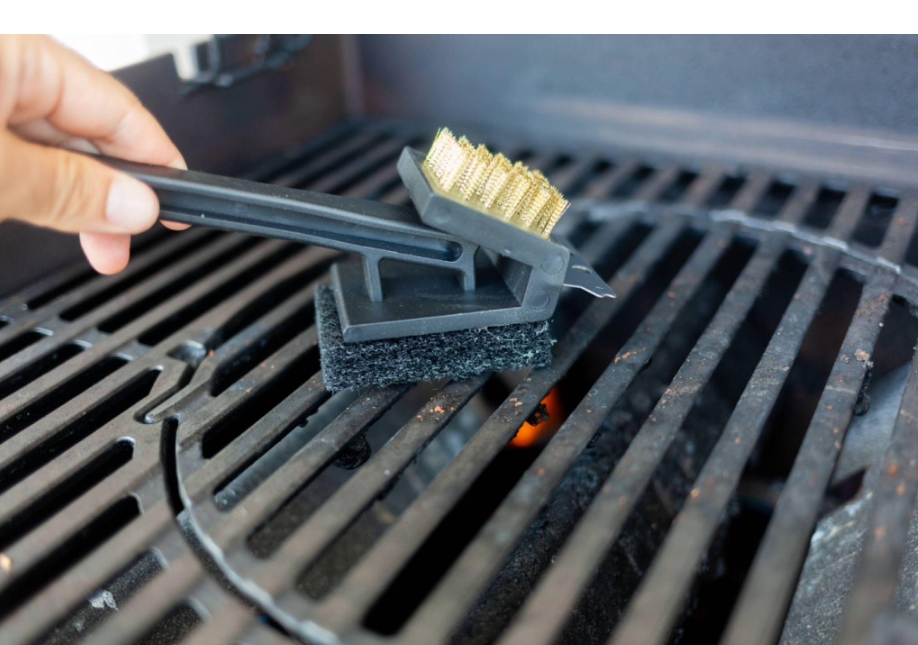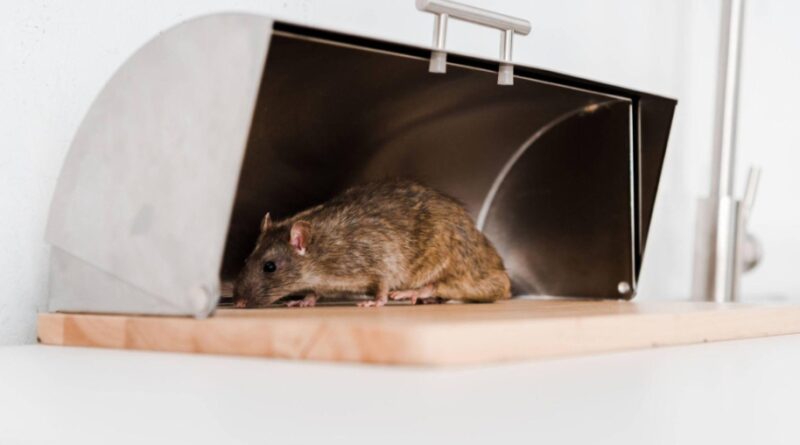How to Clean Your Grill after a Rat Infestation?
Nothing beats the joy of outdoor grilling until rodents turn your BBQ haven into a health hazard. Whether you’re hosting a family barbecue or preparing a quick solo meal, the last thing you want to deal with is a grill invaded by pests like rats or mice. Clean your grill the right way fast, safe, and effective tips to remove grease, grime, and bacteria for better tasting BBQ every time.
Unfortunately, outdoor grills can easily attract these rodents due to leftover food and the shelter grills provide. The presence of mice or rats isn’t just unpleasant—it raises serious concerns about sanitation, food safety, and potential health risks.
In this article, we’ll cover whether it’s safe to use a grill after rodent activity, how to properly clean and disinfect it, and how to prevent future infestations—so your outdoor cooking stays safe and worry-free.
Can You Safely Grill After a Rodent Infestation?
Grills that have come into contact with rodents shouldn’t be used without a deep clean and full disinfection.
Rodents are known carriers of several harmful pathogens, including salmonella, hantavirus, leptospirosis, and LCMV. These organisms can be transmitted through their waste and contaminate surfaces that come into contact with food.
Rodent urine, droppings, and nesting debris pose a serious contamination risk. A thorough cleaning is essential to eliminate any health threats and make your grill safe for cooking again.

How to Clean a Grill After Rats?
If you find signs of rodents in your grill, follow this detailed cleaning process to restore it to safe condition:
Safety First:
Rodent droppings may carry deadly bacteria and viruses don’t risk your health! Rodent waste can contain bacteria and viruses that pose health risks. Protective gear minimizes your exposure.
Inspect the Grill for Evidence:
Check the entire grill, including hidden areas like under the lid, near burners, and inside crevices. Look for rodent droppings, nests, bite marks, or any other signs of infestation. Once you’ve assessed the contamination, you’re ready to begin cleaning.
Remove All Grates and Accessories:
Take out all detachable parts—grill grates, burners, drip trays, etc. These items should be cleaned separately. For heavily soiled parts, soak them in warm soapy water to loosen hardened grease and grime.
Vacuum or Sweep the Interior:
Use a shop vacuum with a hose attachment to remove loose debris, feces, or nesting material. A handheld broom can help dislodge any clumps too large for the vacuum. Be thorough—focus on all crevices where rodents could have been hiding.

Clean the Grill with Soap and Water:
With the debris removed, scrub the entire grill—inside and out—with warm soapy water. Gently scrub with mild soap and a soft sponge to protect your grill’s finish and stay safe from hidden bacteria.
Be especially thorough in any areas that may have come into contact with urine or droppings. Rinse the grill well to remove all soap residue.
Disinfect the Grill:
Once the grill is clean, apply a disinfectant safe for food-contact surfaces. Spray all cooking surfaces and follow the product’s directions carefully—usually allowing it to sit for a few minutes before wiping.
Choose a disinfectant labeled as safe for kitchen or outdoor cooking equipment to ensure it won’t leave behind harmful chemicals.
Deep-Clean Grill Grates & Parts to Eliminate Hidden Germs Fast!
While the grill body is drying, focus on the parts you removed. Blast away stubborn grime by scrubbing with a wire brush, then soak the grates in warm, soapy water for a deep, hygienic clean.
Once clean, apply disinfectant, then rinse and dry thoroughly before reassembling the grill.
Check the Propane or Gas Lines:
Rodents are notorious for chewing through rubber and plastic parts, so check your gas lines, valves, and connectors. If you notice any damage, do not use the grill until the components are professionally repaired or replaced.
Let the Grill Dry Completely:
After cleaning and disinfecting, let all parts dry naturally and completely before reassembly. Moisture can encourage rust and bacterial growth, so don’t skip this step.
Reassemble and Test the Grill:
Once everything is dry, put the grill back together. Fire it up and let it burn for 10–15 minutes on high. This heat helps kill any lingering bacteria and ensures your grill is safe for use.

How Do I Protect My Grill from Rats?
Stop rodents before they invade smart prevention beats costly cleanups. Here are some smart tips to keep your grill pest-free:
1. Shield Your Grill with a Cover to Block Rodents and Moisture
Protect your grill from pests by storing it in a covered area like a garage or patio your first defense against rodent invasions! If outdoor storage is your only option, invest in a durable, tight-fitting grill cover to block rodents from getting inside.
2. Keep the Area Clean:
Rodents are irresistibly drawn to leftover grease and food scraps turning your grill into a pest hotspot. Always clean your grill after every use and wipe down the surrounding area to remove crumbs or drips that could attract pests.
3. Use Rodent Deterrents:
Natural deterrents like peppermint oil work well to keep rodents at bay. Repel rodents fast tuck peppermint oil–soaked cotton balls around your grill to keep pests away naturally. You can also use ultrasonic repellents or secure snap traps in nearby areas if needed.
4. Seal Any Gaps or Holes:
Inspect the grill and surrounding structures for cracks, holes, or entry points. Use weather-resistant sealants, metal mesh, or steel wool to block access. Also, check fences, sheds, and walls for any holes rodents could squeeze through
5. Use Traps and Baits:
If you suspect rodent activity nearby, place traps or bait stations around the grill area. Use humane traps or enclosed bait systems, and monitor them regularly. Dispose of any captured rodents promptly and safely.
6. Professional Control Service:
Dealing with recurring rodents? Call a pest control expert before it gets worse. Expert Pest Control in Sydney or other urban areas, experienced technicians can assess the infestation, locate access points, and recommend effective, long-term prevention strategies.
Conclusion:
Using a grill that’s been exposed to rodents is not safe until it’s been properly cleaned and disinfected. Mice and rats can spread dangerous pathogens that linger on surfaces and pose serious health risks.
By thoroughly cleaning your grill and taking preventative steps to keep rodents away, you can enjoy your grilling sessions with peace of mind. Always prioritize hygiene and maintenance it’s the key to safe and enjoyable outdoor cooking year-round.
Also Read: Recifest.com: Your Ultimate Hub for Travel, Health, Lifestyle & More
